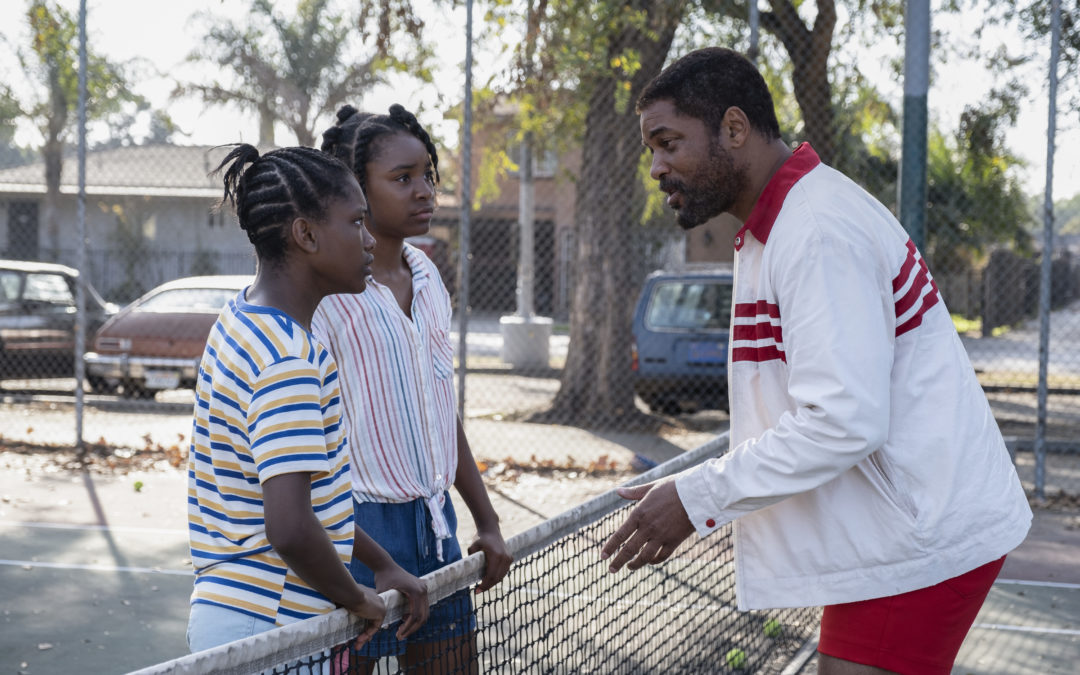
by Sharon Garro Maps, Psychologist, Redirection Psychology/Psychlopaedia.org | Nov 18, 2021 | Headline News |
Video Courtesy of Successful Black Parenting magazine
RELATED: 14 Two-Minute Parenting Podcast Shorts
Bringing mindfulness to the challenges of children can help parents to better enjoy the precious early years
Parents can struggle to enjoy the present. Children fill parental minds with lists of things to do and challenges to overcome. Many mums and dads struggle to enjoy the moment they are in, even as they know this stage won’t last forever.
Mindful parenting brings the concept of mindfulness to our experience as parents.
When we practice mindfulness, we tune our thoughts into what we’re sensing in the present moment rather than living in the past or imagining the future. This simple-sounding approach has been shown to have many benefits. Psychological research suggesting it can relieve stress, anxiety and depression.
How to be a mindful parent
Imagine you are juggling the children’s homework with cooking the dinner. You are longing for that time of the evening where you can sit on the couch for a few hours before you go to sleep, and it all starts again.
If you can practice mindfulness and be in the “here and now”, rather than trying to multitask or get through your immense to-do list, you may find that you can enjoy even these routine daily tasks.
You might choose to sit down with your child while they’re doing homework and look at this as time for you to connect with them and give them your attention. You might also enjoy a cup of tea while being fully present with your child, taking the time to be there for them and for yourself. Following this, you can turn your attention fully to the task of cooking. But rather than rushing the process and being on auto-pilot, you may be better able to enjoy this task too: the smells, the creativity, and the enjoyment of making a nutritious meal for your family.
When my little ones used to ask me to read to them before bed, I would often skip a few pages to hurry the process. I was tired and desperately wanted to get some time for myself. Once child number four arrived, I became more aware of how fast the time goes. Now I am the one who starts story time and loves to sit with my little boy and smell his hair, feel his soft skin and touch his warm body. I now find these times to be a blessing and enjoy being in the moment. Reading no longer feels like a chore.
Practice makes perfect
Mindfulness improves with practice, and it can be challenging for those starting out. But while mindful parenting doesn’t magically make things easier, it can help us to get more enjoyment out of things we often take for granted. This in turn can give us more of that energy we so desperately need.
Republished courtesy of Psychlopaedia.org

by C.B. Fletcher, Urban Faith Contributing Writer | Nov 15, 2021 | Headline News, Relationships |
It’s not easy to be hated by the person who is supposed to love you most, and unfortunately, being toxic has become normalized in our culture.
Many see misdirected aggravation, gaslighting, physical abuse, and more as “love tactics.” When a child only knows pain as a source of love, then they too love in that way and any other form of healthy love seems abnormal.
However, the question is, can a person ever love authentically if they were raised to be toxic?
The assumption is no. When someone is exposed to consistent, toxic stress, they are vulnerable to mental and physical illness that can sometimes develop into a genetic trait, according to Hey Sigmund; therefore this behavior is biologically passed on through generations.
However, despite the science behind the effects of toxic love, there is always hope for a better life.
Fighting for Love
 “I just felt like I wasn’t loved by my mom, says Monique, a woman in her 40s who was often told she wasn’t good enough. “I felt growing up in my mom’s house I wasn’t allowed to be me, an individual.”
“I just felt like I wasn’t loved by my mom, says Monique, a woman in her 40s who was often told she wasn’t good enough. “I felt growing up in my mom’s house I wasn’t allowed to be me, an individual.”
To suit her mother’s perfect image of a family, Monique, was to participate in certain activities without any consideration of her talents or desires. While at the same time, her brother was given free reign to participate in activities of his choice throughout their childhood.
And to make matters worse, Monique’s father suffered from Post Traumatic Stress Disorder (PTSD) and would often abuse her. She recalls him touching her to satisfy his physical desires and severely beating her when she reported it to her incredulous mother.
Fortunately, Monique found refuge in her grandmother’s home, where she found the kind of love her mother envied. Monique remembers her mother punishing and verbally abusing her as a result of the love she received from her grandmother.
Like many girls, Monique found herself looking for love in empty relationships during her teen years that lead to a forced, terminated pregnancy and physical and emotional abuse similar to the treatment she received from her own father.
Eventually, Monique met a gentle and caring man named Laz. However, Laz’s compassion and gentleness were unfamiliar to her, which ultimately lead to Monique returning to one of her previous, toxic relationships.
She went on to marry a former flame named Xavier and stayed in her abusive marriage for eight years.
“Towards the end of my [3rd] pregnancy, I found out he was cheating and when I confronted him, he hit me,” says Monique who recalls her toxic relationship that mirrored her childhood. “He asked, ‘Who are you to question me?’…It felt like because of the way I grew up, if I wasn’t getting hit, then it wasn’t love,”
After her divorce, Monique fought against her toxic past. She made the decision to rise above her father’s mental illness, her mother’s jealousy and apathy, and their collective effort to make her their emotional punching bag for their marriage troubles.
Although the struggle did not end after her marriage when it came to love, her children, and health, she remains hopeful enough to fight for the love she deserves. She charges her will to carry on to God, because without Him, she would have taken the final blow to end her suffering.
Turning Off the Gaslight
Bella was born to a Catholic family that rejected her mother for having a baby with a man that she later learned was married. The rejection caused her mother to make multiple attempts to prove her worth to the family by making Bella seem exceptional, but in private her mother was spiteful and unloving as the list of accomplishments grew.
“[My mother] did everything for me to prove herself, but not for the love of me,” Bella explains. “She worked hard to put me through private school and extracurricular activities, but at home I was repeatedly told I was nothing; sometimes she even called me a waste of a human being. To this day, she has never told me she loves me.”
Whenever something would go wrong in Bella’s life, she would automatically blame herself as a result of her relationship with her mother. Even when her husband and father of their two children committed adultery, she took the blame.
As time went on, Bella lost the love of her life, her job, and believed that she would never be loved which drove her into a suicidal state .
Until one day, Bella decided that she had enough and began to fight for her life, beauty, and self-love through therapy. “Once I figured out that I wasn’t this awful, unlovable monster that I was made to believe as a reality by someone who was unloved, it turned my world upside down in a great way,” Bella says. “It never would have happened without me doing the work in therapy.”
As a result of her treatment, Bella was led to a love that she has been enveloped in for the last four years. Even though the pain of rejection transcended through two generations, love won in the end.
“In the middle of all of this, I met a man who just rained love on me,” Bella joyfully exclaims.
Is there hope after a toxic upbringing?
 “But you have this in your favor: You hate the practices of [your abuser], which I also hate” (Revelations 2:6, NIV).
“But you have this in your favor: You hate the practices of [your abuser], which I also hate” (Revelations 2:6, NIV).
In the beginning of this article, the question was, can a person love authentically if they were raised to be toxic? The answer is yes, but you must fight for it.
It is easy to nurse the scars of someone that you love, because love is to be unconditional, right? But what good is unconditional love when a person’s pain has replaced the spirit that you desperately want to love?
That is spiritual warfare and it is best to back away and allow God to handle it if they are unwilling to get help. It is important to recognize the signs of someone who has been abused and trying to regain power, which can include verbally sharing memories of their toxic loved ones.
Fortunately, Bella and Monique worked past those painful memories found a way to defeat them so that the tradition of toxicity ended with them and a reign of love could begin.
by T-Kea Blackman | Nov 11, 2021 | Headline News |

Dealing with a mental illness is never easy but with the proper strategies and tools, you can learn to manage your mental health while living a happy life.
Self-care is the root for coping with mental illness. I never understood the meaning of self-care until I was hospitalized. It sounds simple to take care of yourself but you would be surprised by how many people neglect self-care.
Many of us tend to take care of everyone else without realizing that we are more valuable and effective if we take the time to give ourselves some TLC. 3 John 1:2 says “Dear friend, I hope all is well with you and that you are as healthy in body as you are strong in spirit.”
God desires for us to be healthy. But, how can He dwell within in us if we aren’t healthy in our mind, body, and spirit?
According to the Anxiety and Depression Association of America, Anxiety disorders affect approximately 40 million adults in the United States. It is also common for individuals with depression to have an anxiety disorder or vice versa. In fact, 6.7 percent of the United States population has major depressive disorder (MDD).
However, the good news is that 80 percent of those treated for depression and anxiety show improvement in their symptoms within four to six weeks of beginning medication, psychotherapy, attending support groups or a combination of these treatments. In addition to clinical treatment, there are a variety of coping mechanisms that help manage your symptoms.
Feeding your spirit can include praying and/or reading your Word. However, we, as Christians, may also want to consider opening our minds to additional coping strategies that will impact one’s spirit, body, and mind.
1. Therapy
I have been in therapy for a year and a half, and it has been a long process but I am reaping the benefits for sticking it out. Find a therapist that you like and feel comfortable talking to. Therapy offers personal insight, empowerment, coping strategies, prevention of future illness distress, and someone to talk to without judgment. I was hesitant in the beginning because I thought to myself “I am not crazy. I do not need therapy.” However, I am glad I put my fear aside and gave it a try. While you can talk to a friend, family member or pastor, I recommend that you speak with a person who has a background in mental illness.
2. Balanced Diet
It is not rocket science but the foods we eat impact our illness. If your mental illness is a mood disorder such as depression or bipolar disorder, it is important to be conscious of how food affects you. I have noticed when I consume an obsessive amount of comfort foods such as ice-cream and cookies, I feel worse. Here is the problem with overeating; it decreases your energy because your body must work harder to break down the food. Not to mention, overeating can lead to being overweight. A balanced diet helps with concentration and energy levels. According to Everyday Health, foods such as turkey, walnuts, fatty fish, whole grains and green tea help with depression.
3. Exercise
You do not have to go to the gym every day if that is not your thing but you can take a walk, attend a dance class, play sports or play with children. When you exercise, your body releases chemicals , such as endorphins. Endorphins, also known as the feel-good chemical, interact with the receptors in your brain that reduce your perception of pain. Endorphins also trigger a positive feeling in the body, similar to that of morphine. Exercise also helps to alleviate stress, improve self-esteem, and sleep.
4. Create a support group
It can be frustrating when you have a mental illness and no one understands you and/or judges you. Finding the right support team is important. This may include a life-coach, therapist and/or psychiatrist, significant other, family or friends. Each individual should help in some way by meeting a need or needs. If the relationship is not healthy then you may want to consider removing them completely from your life. You should be able to share with your support group whether you are having a good or bad day. When you struggle with a mental illness, every day will not be sunshine and rainbows, and that is okay.
5. Listening to nature sounds
Before I go to sleep, I play sounds of waves as it helps to relax my mind and body. I enjoy hearing the sounds of waves, raindrops, and waterfalls. When most of us take vacations, we tend to go to the beach, tropical islands or lakes to relax and rejuvenate. So, it makes sense that the sound of nature such as birds chirping and waves help many relax, specifically, the sound of water. According to an article by the Huffington Post, water gives our brain rest from overstimulation and induces a meditative state.
6. Himalayan Salt Lamp
I had no idea of the benefits of a Himalayan salt lamp. The lamp is a carved piece of rock from the Mountains in Northeast Pakistan and stretches across approximately 186 miles from the Jhelum River to the Indus River. The Himalayan salt lamp releases negative ions which promote a relaxing environment and increases the feel-good chemical serotonin in the brain. WebMD explains it perfectly. Negative ions are odorless, tasteless, and invisible molecules that we inhale in abundance in certain environments. Think mountains, waterfalls, and beaches. Once they reach our bloodstream, negative ions are believed to produce biochemical reactions that increase levels of the mood chemical serotonin which help to alleviate depression, stress, and boost energy.
7. Journaling
While journaling is not anything new in the mental health world, I think it is important for anyone struggling with a mental illness. It helps you be honest with yourself, track changes, create goals and express feelings through journaling. The beautiful thing about journaling is that you can be as free as you want and it is a judgment-free zone. You can journal once a day, a few times a day or every few days; there is no set schedule so it does not feel like a chore. If you are in therapy, journaling can allow you to write topics and concerns that you can discuss in therapy that will better aid you in your recovery and healing. Journaling helps to clarify your thoughts, reduce stress and solve problems. It has also been proven that journaling is one of the most effective coping skills.
While the above seven strategies mentioned are not the only strategies for coping and taking care of yourself, it is important to find what works for you. Take the time and step outside of your comfort zone for managing your mental illness and begin your journey to healing. God often pushes us outside of our comfort zone to strengthen our faith in Him and ourselves.


![]()





 “I just felt like I wasn’t loved by my mom, says Monique, a woman in her 40s who was often told she wasn’t good enough. “I felt growing up in my mom’s house I wasn’t allowed to be me, an individual.”
“I just felt like I wasn’t loved by my mom, says Monique, a woman in her 40s who was often told she wasn’t good enough. “I felt growing up in my mom’s house I wasn’t allowed to be me, an individual.” “But you have this in your favor: You hate the practices of [your abuser], which I also hate” (
“But you have this in your favor: You hate the practices of [your abuser], which I also hate” (